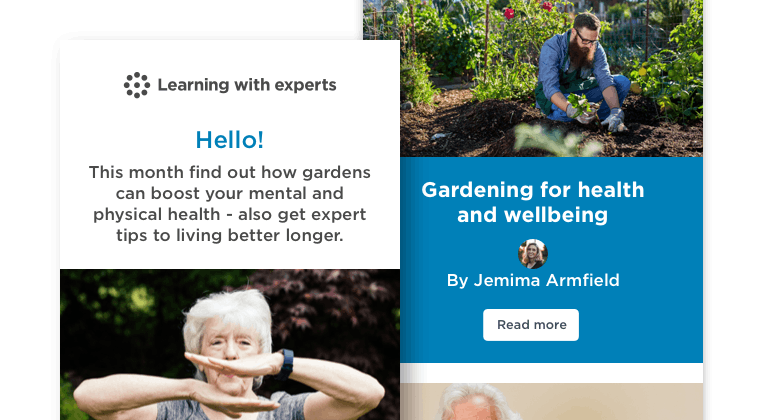How to be super strong and fit – and a vegan
By Geoff Harris •
Concern over animal welfare in a globalised economy and the climate change crisis is fuelling interest in veganism, particularly amongst younger people.
We recently launched a vegan cookery online course with chef Kirk Haworth and we wanted to find out more about the link between veganism and fitness.
Some personal trainers and body builders are sceptical that a purely plant-based diet can deliver enough protein and other nutrients to maintain a high level of fitness and muscular strength.
Somebody who totally refutes these arguments is Edric Kennedy-Macfoy, a former body builder and London firefighter who is now a personal trainer and author – his book, The Fit Vegan, is widely available online.
In it, Edric talks about his own personal journey to veganism, and provides fitness and diet plans for a wide range of readers. We caught up to find out more.
When did you first become a vegan?
I was a carnivore until about five years ago, then I dated a few people who were vegan. I had some interesting discussions with one lady in particular.
She was pretty chilled when I wanted to go out for a steak or something, but I started asking you why she was totally vegan. I’ll never forget her answer: “I don’t think animals should have to suffer and die so we can eat them – particularly as we no longer need to for nutrition.”
She challenged me to watch a few documentaries that revealed the reality of the animal farming industry and all the horrors that are hidden from us. They also taught me a lot about all the hormones and antibiotics that get used, which can have a detrimental effect on human health.
I asked myself whether I considered myself a superior species, and whether I had the right to eat other life. I decided that eating meat was going against my morals and growing spiritual awareness through studying yoga etc. That night I cleared out all animal products from my house.
How did you find going vegan at the beginning?
At first I didn’t do much more than just to stop eating meat. To be honest, I didn’t have much of an appetite as my aunt was dying of cancer.
I felt good physically, but not as energetic as before. Once I realised I was not getting enough iron and protein, and started to eat more quinoa, greens and fruit, I began to notice a big difference in my energy levels.
I decided to do an experiment, and stopped doing weight training for a year while following a vegan diet – I just did yoga, running etc. People noticed I lost weight but said I looked great, and when I started training again as a vegan, I put the muscle right back on – but people said I looked even better than before. So for me, the proof is in the pudding.
What is your advice to people thinking about going vegan, particularly for those into fitness and weight training?
The bigger answer that in body building, people are primarily concerned with how they look externally but I say how you are inside will affect how are you outside. If you are concerned about losing muscle mass, there are so many different sources of protein to preserve muscle, and build even more.
For example, there is tempeh and soy – soy is controversial and you could find lots of studies for and against, but I have no problem with it. Then there is tofu, chickpeas, pea protein, quinoa…
You aren’t consuming any hormones or antibiotics, either, or any of the pain and fear the animal went through. I always say, ‘try it.’
Some people might find a vegan diet too much of an expensive hassle though?
The expense argument is a myth, as meat can be priciest thing in your shopping basket. Changing to vegan can be confusing, but if you plan before you go shopping, it gets easier. I found it helpful to focus on what I CAN eat rather than what I CAN’T. As with any change, it can be tough at first but it does get easier.
How do you feel about ‘mock’ meat, which even burger outlets are serving these days?
I try to stay away from mock meats as you don’t know what’s in them, including genetically modified products. Plant burgers are good to help with the transition to veganism, however; they help with the cravings and can often taste better than the real ones!
Some vegan food can be high in fat and salt too, though, surely?
Well, yes, but for me it is the lesser of two evils. You can also carefully check the packaging before you buy, or only buy from a reputable supplier.
Do you think veganism could just end up a passing fad?
Possibly, but you have lots of people trying it and it’s never been easier to get vegan products, even from mainstream supermarkets. For me, being vegan is part of a wider yogic philosophy (Edric is a keen student of yoga).
I see it as part of the philosophy of Ahimsa: advancement of thought, not harming life, integrity of thought, word and deed, mastery of self, service to humanity and advancement of truth.
Suggested Vegan online courses:
Recommended course
Vegan and Plant Based Cooking
Kirk Haworth
Vegan and Plant Based Cooking taught by Kirk Haworth
Learn how to cook vegan and plant-based dishes, including a vegan diner party menu. Taught by chef Kirk Haworth.
View courseAll Food & Drink coursesStay updated
Receive free updates by email including special offers and new courses.
